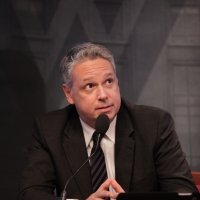Rousseff’s Tenure Nears the End
Increasingly isolated, President Dilma Rousseff has vowed not to resign and fight ongoing impeachment proceedings in the Brazilian Chamber of Deputies. The proposal under consideration is based on allegations that the president manipulated budget accounts and made unauthorized expenditures, which are impeachable “crimes of responsibility” under Brazil's constituition. However, there is controversy among legal experts regarding this interpretation.
Congressional sources say that a vote could take place as soon as the second week of April. The president will have to step aside if the motion to impeach is supported by two thirds of the Chamber’s 513 members. In that case, Vice President Michel Temer will take office. A final decision by the Senate could take up to six months. Recent events have added pressure for a quicker resolution, including a potential plea agreement by the president and senior executives of construction company Odebrecht who are defendants on the corruption scandal that feeds the crisis: the theft of billions of dollars from the state oil company Petrobras during the tenures of Rousseff and her predecessor, Luiz Inácio Lula da Silva. As the former minister of Energy and chair of the Petrobras board of directors, the Brazilian president has not been charged in the case.
On March 29th, the PMDB, the main ally to Rousseff’s Workers Party, is expected to exit the fraying government coalition. The following day, the country’s Supreme Court is likely to keep in limbo the controversial nomination of Lula as chief minister in the president’s cabinet. The appointment was suspended by one of the Supreme Court ministers on grounds that it constitutes an obstruction of justice aimed at shielding the former leader from prosecution by a lower court judge, Sergio Moro, who leads the investigations on the assault on Petrobras. With the economic conditions deteriorating and new incriminating revelations on the scandal appearing almost daily, a constitutional ousting of the president looks increasingly inevitable. But pro-government forces have not given up. Although clearly in the minority in the court of public opinion, they say impeaching the president would amount to “a coup against democracy” and have pledged to resist it.
On Thursday March 31st, from 1-2:30 PM, the Brazil Institute will convene a panel of experts to assess the situation and the uphill scenarios ahead. The event will start with the presentation of findings of a new poll by Ideia Inteligência on voters’ perceptions of the crisis, its main actors and potential outcomes. The session, to be webcast live, will feature three speakers in São Paulo and two in Washington, connected via Skype with an audience at the Wilson Center. A light lunch will be served.
Speakers






Hosted By

Brazil Institute
The Brazil Institute—the only country-specific policy institution focused on Brazil in Washington—aims to deepen understanding of Brazil’s complex landscape and strengthen relations between Brazilian and US institutions across all sectors. Read more
